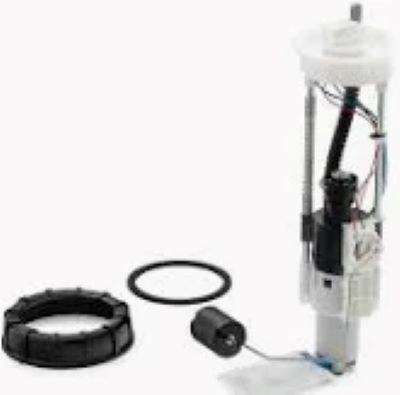The fuel pump in high-power cars is the key element that ensures that the engine gets as much fuel as is necessary for optimum power output. Thanks to their elevated horsepower and torque, these vehicles typically need more fuel than their standard counterparts—which at higher pressures—to ensure the engine continues to operate reliably and efficiently, a high-performance fuel pump can help.
With High Pressure Fuel Delivery: When putting the performance of your engine right on the hairy edge, you need a more fuel flow at higher pressures to keep everything humming along smoothly. High-Performance Fuel Pump: While an average fuel pump deliver fuel pressures of 30 to 60 psi, high-performance fuel pumps can supply fuels beyond 100 psi. It prevents fuel injectors from starving of fuel (especially under load and during acceleration), ensuring that your engine is running at a correct air-fuel ratio. In a turbocharged or supercharged int the situation is worse, as more charge also needs extra fuel too, so for this example bigger pump is indispensable.
Typically, high-performance cars use larger injectors and fuel lines which demand a pump that can provide large volumes of fuel efficiently. Fuel pumps need to keep up a constant flow rate no matter how much fuel is demanded at one time (ie during a race or hard acceleration). In a high-performance vehicle, if it gets an inadequate fuel supply, it could reduce its engine output by 15%, that is why the fuel pumps needs to be accurately adjusted so that it instantly meets the demand of fuel in the engine without lag or drop pressure.

Modifications: In high performance applications, the stock pump may be required to supply more fuel than its originally designed flow rate which then necessitates larger turbochargers and higher compression ratios etc. An upgraded fuel pump helps ensure that modifications such as these actually work by supplying the additional fuel they require. Without this upgrade, the engine is in danger of running lean and overheating and potentially damaging internal components. The life expectancy of high-performance engines is supposed to be correlated directly with the fuel pump being able to provide a smooth and steady supply of fuel.
A Real-World Example — The Bugatti Chiron, which is one of the fastest production cars in the world, showed that a high-performance fuel pump matters in 2020. At full throttle to 261 mph, the Chiron's fuel system is required to deliver more than 1,000 liters of fuel per hour for it's 1,479 horsepower engine - exemplifying just how vital a high performance fuel pump can be under extreme conditions.
Remember that if you are out there shopping, as one Enzo Ferrari supposedly put it: “The car is a means to an end, and the end is speed. High-performance fuel pumps are also an essential in the quest for speed – there's no sense building engines capable of high power if they're not properly fed, after all.
So that people do not have to spend hours and days in search for the best fuel pumps regarding high-performance applications the Fuel pump is here with a variety of products offered by them to fulfill the requirements of powerful engines.